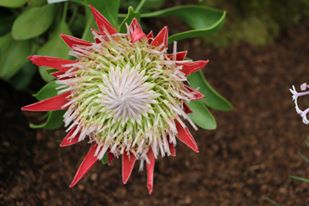One to One Mindfulness Course
Mindfulness and Happiness
What are you searching for in life? Does something need to change? Is something missing? Do you want to get away from something or move towards it? Do you just think there is a better way?
We all have our own ideas on what we want from life, but for me, overall, I just want to be happy. But sometimes even happiness itself can seem difficult to find, frequently, the problem here, is in the way we are thinking about happiness. So often we are looking at it as a destination, so that when we do eventually find it, it can be tough to keep hold of. We spend so much of our lives obtaining things or striving for things in order to become happy, and yet, if we do manage to arrive at the spot we want to be, we then have difficulties staying there.
This happens because our brains are not naturally programmed for happiness; we are actually programmed for survival. Our automatic responses are triggered by our fight flight survival system that kicks into action when we sense danger or threat. This jumps into action whether that threat is real or imagined and brings with it negative emotions like anxiety, fear and anger. These are a warning signal to us that something is not right, our stress hormones have fired up and, our brain is telling us, there is some action we must take to correct this imbalance. Left unchecked these hormones affect our normal performance, we might become forgetful, find it difficult to concentrate or make decisions. If the stress response continues other problems occur, it may affect our weight, our sleep and leave us feeling tired and worn out.
Stress is a normal part of our everyday lives, but if we do not handle it appropriately, it can take more and more control of our bodies. If this stress continues to remain unchecked, these hormones can take such a hold on us that, we can feel as if we have already fallen so far down the rabbit hole, it seems almost too difficult to climb out of. Now happiness seems further away from us, and an even more unattainable target.
.
.
Mindfulness – The Research
But happiness is not a destination it is a state of mind, and in our frantic search for this destination we forget to enjoy the journey, which is quite ironic, as it is actually in the journey itself where real happiness lies. When we become mindful we give up our fixed focus on the quest, that distant point in the future we must get to, we remember to enjoy the present moment, each and every moment, as it is in these moments that our genuine happiness is to be found.
Research has repeatedly shown the benefits of mindfulness on well-being, and its association with higher levels of life satisfaction, more positive emotions, less negative emotions, greater life satisfaction, sense of autonomy and competence (Brown & Ryan, 2003). It has also been found that higher levels of mindfulness are associated with various positive psychological outcomes, such as lower levels of neuroticism, depression, and anxiety as well as high levels of self esteem, vitality, and authenticity (Brown & Ryan, 2003; Lakey, Kernis, Heppner &Lance, 2008).
The amount of scientific studies on mindfulness has significantly increased over the past 20 years, giving us a great deal of information about the effects of mindfulness and the mechanisms that underlying it. They have also shown us that the effects of mindfulness cannot be simply attributed to relaxation, that they actually involve complex processes like attention regulation, emotional coping, observation and time perception.
This course aims to gradually increased mindfulness through a mixture of looking at these underlying mechanisms along with a series of mindful practices. For example, as well as practicing meditation, this course assists in answering questions such as: “what happens when I meditate?” “Why does meditation help reduce the effect of negative thoughts?”” Why is it useful to become aware of judgements I make?”
Overall this course aims to assist you to better understand the workings of the mind and directly puts those understandings into practice to create a more balanced life. It is this combination of the practice and the psychology behind mindfulness that has been proven so helpful for many people.
The course is divided into nine modules
1. Introduction: General overview of the course and introduction to mindfulness and some simple practices.
Mindfulness is a complex and many-sided construct. By focusing on the key areas of mindfulness, one by one, this course breaks down mindfulness in a comprehensive way. We will look at the different building blocks of mindfulness in each of the subsequent eight sessions and then integrate these building blocks in the final session. The overall aim is that after completing this course you will have learned to integrate mindfulness into your daily lives and gained a deep understanding of the essence of the construct itself.
This course will be most effective when you complete the exercises/practices given at home between sessions. These usually require about 15 to 30 minutes a day. There are different types of practical exercises, like formal meditation and more informal daily practices. Some of these practices will be introduced from the start. These exercises can be both valuable and enjoyable, and will give you practical opportunities to connect the insights of your increasing mindfulness knowledge to your personal life.
2. Attention And The Now
This session introduces you to the two most important building blocks of mindfulness; attention and the present moment. The cultivation of attention to the present moment is at the heart of mindfulness. So we often fail to pay attention to the present moment because we are so preoccupied with our thoughts, and these thoughts are so frequently about the past or the future. Therefore in this session, we really look at the role of thoughts and their relationship with the present moment.
3. Automaticity/ Autopilot
This session aims to simplify the relationship between mindfulness and that autopilot, we spend so much of our day in. It is essential to look at this early in the course as so many of the problems we experience involve automatic patterns or habits. If we are not aware of these patterns, then how can we change them? By bringing mindful attention to our automatic reactions and routine patterns of thinking and behaviour we enable ourselves to minimize the impact and open up the possibility for choice.
4. Judgement
Judgement is something that is hardwired into our brains, and as such our daily awareness is clouded by constant judgements and evaluations, these are also shaped by pre-existing ideas or intentions. An important element of mindfulness is “open awareness” which refers to a quality of consciousness that is not evaluative or actively shaped by pre-existing ideas or intentions. Unlike judgement, it allows us to be fully receptive to allowing our experience to simply happen ” as it is”. In this session open awareness is introduced by addressing the evaluative nature of the mind. This session aims to assist you to experience that judgemental nature of your mind and learn about the problematic aspects of judgement.
5. Acceptance
As we will have already discovered by this session, mindfulness promotes an accepting attitude towards experiences. We will look at explaining and applying exceptions through discovering a willingness to experience difficult experiences or emotions, rather than fighting or avoiding them.
6. Goals
One of the most common barriers in the cultivation of mindfulness is our excessive focus on the future. For so many of us our default mode is a “doing mode” that is continuously focused on reaching goals the future. Mindfulness does not mean we cannot look to the future or set goals, what it does is bring a balance between being in the present moment and planning for the future. This session brings the discovery of the dangers of an excessive focus on the future and investigates the benefits of a grateful relationship with the present moment.
7. Compassion
Whilst many of us find it very easy to bring compassion to our relationships with others, many of us are sadly lacking when it comes to giving back compassion to ourselves, many times even adopting a non-accepting self-critical approach towards the self. We will look at the nature of ‘the inner critic’: an internal voice criticizes the self. In this session you will familiarize yourself with your inner critic and learn how to effectively encourage a friendly and caring relationship with the self by practicing self-compassion, meditation and self-caring action.
8. The Ego
This session looks more deeply at the relationship between mindfulness and the self. Here you are encouraged to take a step back from all kinds of thoughts, including identity related thoughts, to look at stories we tell ourselves about “our self” and our identity and adopt a more comfortable observing the viewpoint.
9. Integration
During previous sessions, you will have been taught about and practiced many essential key processes that underlie mindfulness, in this final session, you will learn the connection between those different processes.
This course is merely a starting point of an endless journey, so during this session we will also focus on ways to create a personal plan of how you will continue to integrate mindfulness into your daily life.
If you are interested in bringing more mindfulness into your life, and would like to kick start your journey to a more balanced life, this nine week program (or 18 for fortnightly appointments) could be just what you have been looking for.
This training offers a one to one personalized experience (small group/ couples training is available at a marginally extra cost).
Prices: individual sessions are the same price as normal therapy sessions (see prices page). Contact me for prices of couples/small-group sessions.
If you would like more information, an informal chat or have any queries please contact me here.








